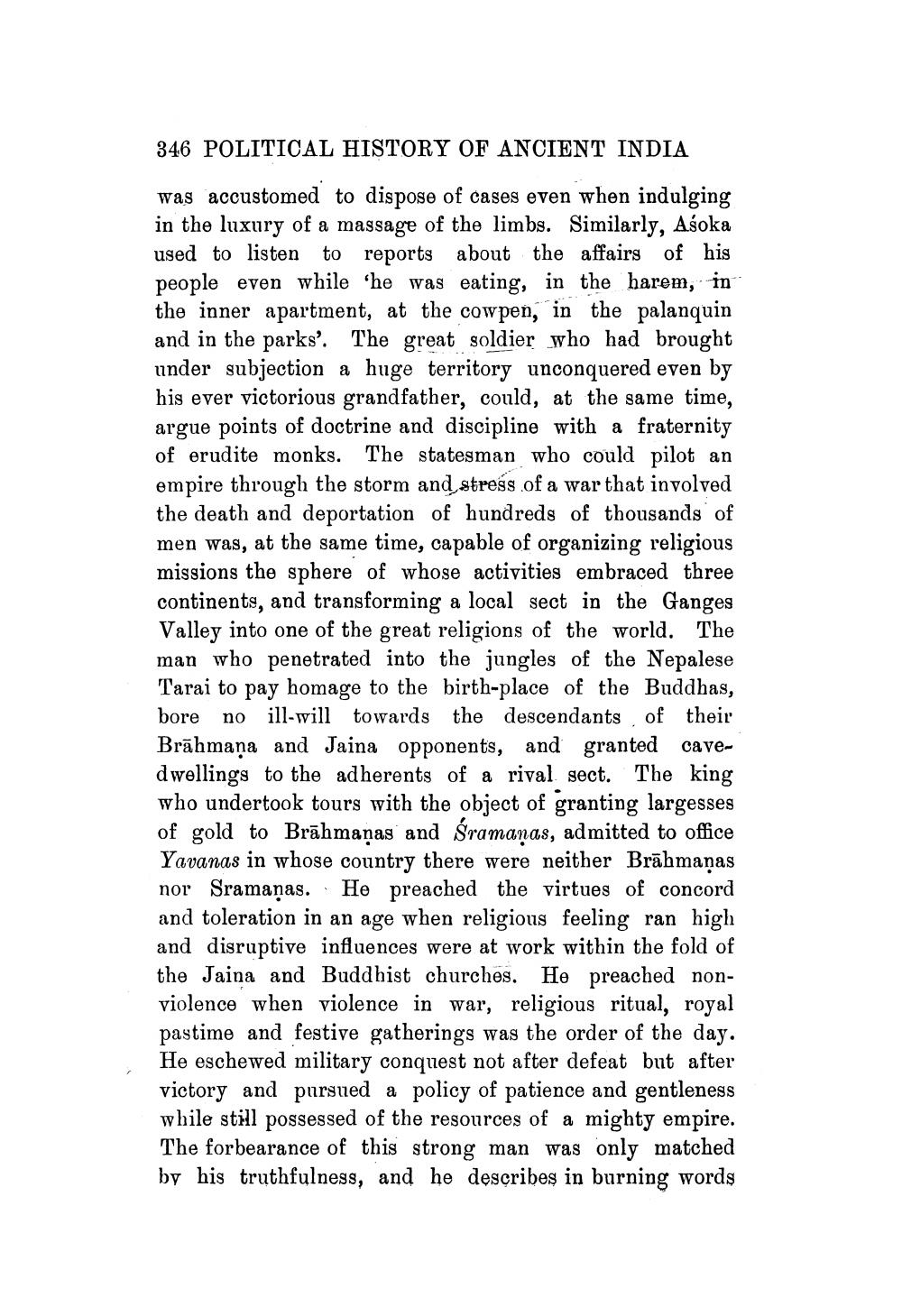________________
346 POLITICAL HISTORY OF ANCIENT INDIA
was accustomed to dispose of cases even when indulging in the luxury of a massage of the limbs. Similarly, Asoka used to listen to reports about the affairs of his people even while he was eating, in the harem, in the inner apartment, at the cowpen, in the palanquin and in the parks'. The great soldier who had brought under subjection a huge territory unconquered even by his ever victorious grandfather, could, at the same time, argue points of doctrine and discipline with a fraternity of erudite monks. The statesman who could pilot an empire through the storm and stress of a war that involved the death and deportation of hundreds of thousands of men was, at the same time, capable of organizing religious missions the sphere of whose activities embraced three continents, and transforming a local sect in the Ganges Valley into one of the great religions of the world. The man who penetrated into the jungles of the Nepalese Tarai to pay homage to the birth-place of the Buddhas, bore no ill-will towards the descendants of their Brāhmaṇa and Jaina opponents, and granted cavedwellings to the adherents of a rival sect. The king who undertook tours with the object of granting largesses of gold to Brāhmaṇas and Śramanas, admitted to office Yavanas in whose country there were neither Brāhmaṇas nor Sramaņas. He preached the virtues of concord and toleration in an age when religious feeling ran high and disruptive influences were at work within the fold of the Jaina and Buddhist churches. He preached nonviolence when violence in war, religious ritual, royal pastime and festive gatherings was the order of the day. He eschewed military conquest not after defeat but after victory and pursued a policy of patience and gentleness while still possessed of the resources of a mighty empire. The forbearance of this strong man was only matched by his truthfulness, and he describes in burning words




